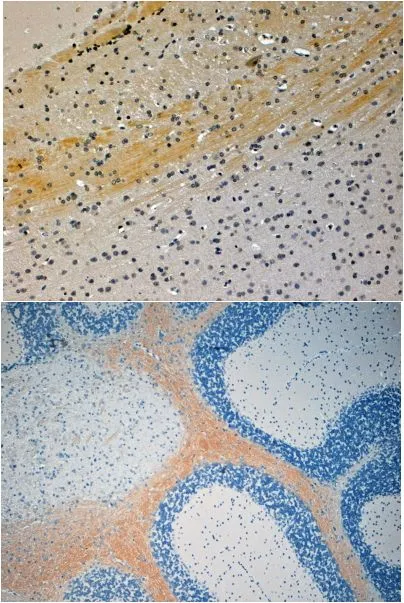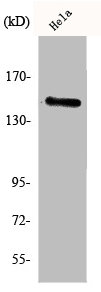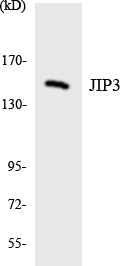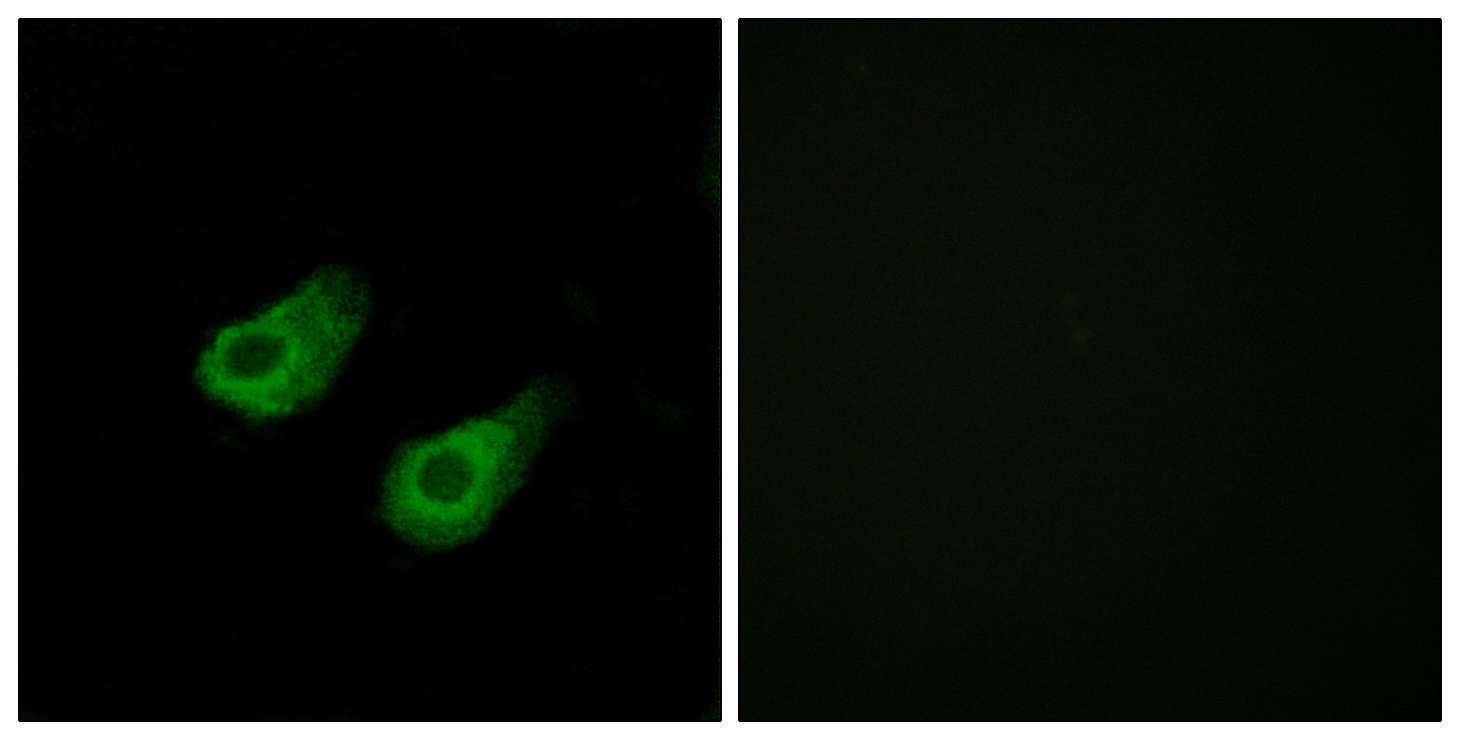
IHC-P analysis of mouse brain using GTX24545 JIP3 antibody, N-term. Antigen retrieval : citrate buffer pH 6 Dilution : 4μg/ml
JIP3 antibody, N-term
GTX24545
ApplicationsImmunoHistoChemistry, ImmunoHistoChemistry Paraffin
Product group Antibodies
ReactivityHuman, Mouse
TargetMAPK8IP3
Overview
- SupplierGeneTex
- Product NameJIP3 antibody, N-term
- Delivery Days Customer7
- Application Supplier NoteIHC-P: 4-6microg/ml. *Optimal dilutions/concentrations should be determined by the researcher.Not tested in other applications.
- ApplicationsImmunoHistoChemistry, ImmunoHistoChemistry Paraffin
- CertificationResearch Use Only
- ClonalityPolyclonal
- Concentration0.50 mg/ml
- ConjugateUnconjugated
- Gene ID23162
- Target nameMAPK8IP3
- Target descriptionmitogen-activated protein kinase 8 interacting protein 3
- Target synonymsJIP-3, JIP3, JSAP1, NEDBA, SYD2, syd, C-Jun-amino-terminal kinase-interacting protein 3, C-jun-amino-terminal kinase interacting protein 3, JNK MAP kinase scaffold protein 3, JNK-interacting protein 3, JNK/SAPK-associated protein-1, JNK/stress-activated protein kinase-associated protein 1, homolog of Drosophila Sunday driver 2, stress-activated protein kinase-associated protein 1
- HostGoat
- IsotypeIgG
- Protein IDQ9UPT6
- Protein NameC-Jun-amino-terminal kinase-interacting protein 3
- Scientific DescriptionThe protein encoded by this gene shares similarity with the product of Drosophila syd gene, required for the functional interaction of kinesin I with axonal cargo. Studies of the similar gene in mouse suggested that this protein may interact with, and regulate the activity of numerous protein kinases of the JNK signaling pathway, and thus function as a scaffold protein in neuronal cells. The C. elegans counterpart of this gene is found to regulate synaptic vesicle transport possibly by integrating JNK signaling and kinesin-1 transport. Several alternatively spliced transcript variants of this gene have been described, but the full-length nature of some of these variants has not been determined. [provided by RefSeq, Jul 2008]
- ReactivityHuman, Mouse
- Storage Instruction-20°C or -80°C,2°C to 8°C
- UNSPSC41116161







